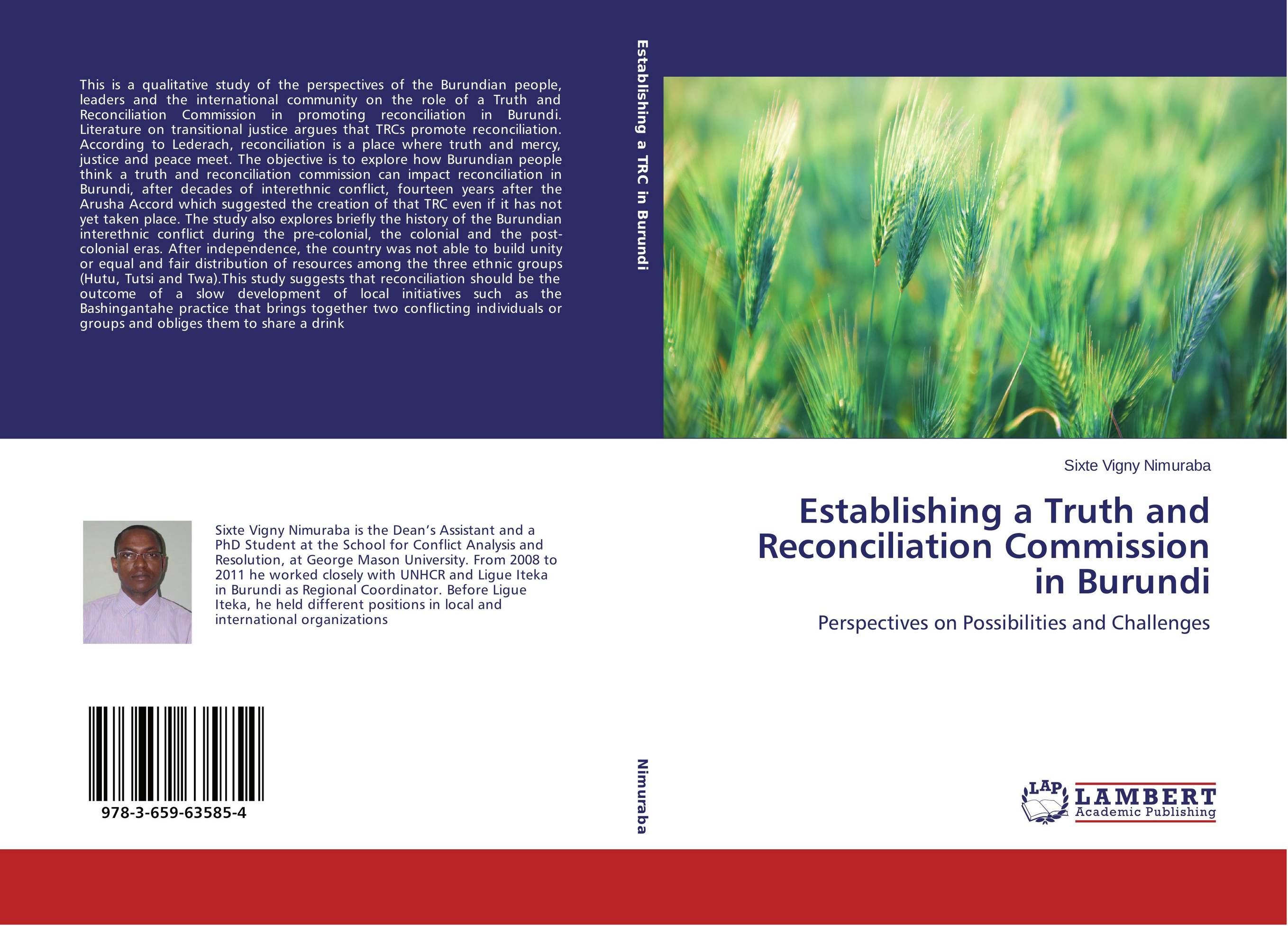| Поиск по каталогу |
|
(строгое соответствие)
|
- Профессиональная
- Научно-популярная
- Художественная
- Публицистика
- Детская
- Искусство
- Хобби, семья, дом
- Спорт
- Путеводители
- Блокноты, тетради, открытки
Establishing a Truth and Reconciliation Commission in Burundi. Perspectives on Possibilities and Challenges

В наличии
| Местонахождение: Алматы | Состояние экземпляра: новый |

Бумажная
версия
версия
Автор: Sixte Vigny Nimuraba
ISBN: 9783659635854
Год издания: 2014
Формат книги: 60×90/16 (145×215 мм)
Количество страниц: 164
Издательство: LAP LAMBERT Academic Publishing
Цена: 42391 тг
Положить в корзину
Позиции в рубрикаторе
Отрасли знаний:Код товара: 141681
| Способы доставки в город Алматы * комплектация (срок до отгрузки) не более 2 рабочих дней |
| Самовывоз из города Алматы (пункты самовывоза партнёра CDEK) |
| Курьерская доставка CDEK из города Москва |
| Доставка Почтой России из города Москва |
Аннотация: This is a qualitative study of the perspectives of the Burundian people, leaders and the international community on the role of a Truth and Reconciliation Commission in promoting reconciliation in Burundi. Literature on transitional justice argues that TRCs promote reconciliation. According to Lederach, reconciliation is a place where truth and mercy, justice and peace meet. The objective is to explore how Burundian people think a truth and reconciliation commission can impact reconciliation in Burundi, after decades of interethnic conflict, fourteen years after the Arusha Accord which suggested the creation of that TRC even if it has not yet taken place. The study also explores briefly the history of the Burundian interethnic conflict during the pre-colonial, the colonial and the post-colonial eras. After independence, the country was not able to build unity or equal and fair distribution of resources among the three ethnic groups (Hutu, Tutsi and Twa).This study suggests that reconciliation should be the outcome of a slow development of local initiatives such as the Bashingantahe practice that brings together two conflicting individuals or groups and obliges them to share a drink
Ключевые слова: Reconciliation, Civil War, Burundi, Transitional Justice, Hutu, Tutsi, Truth and Reconciliation Commission, ethnic conflict



